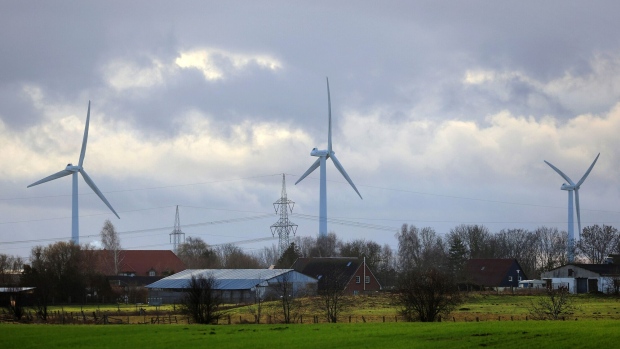Jun 7, 2023
Germany to Boost Investor Returns for Energy Networks by 40%
, Bloomberg News

(Bloomberg) -- Germany’s energy network regulator promised a bigger payback for investors in power and gas grids, a decision that’s likely to raise costs further for consumers.
The Bundesnetzagentur, or BNetzA, pledged to increase investor returns by 40% as it seeks to attract capital to fund a vast expansion in infrastructure needed for the energy transition. Improving networks is vital to cope with ever-increasing flows of renewables, but costs will feed through to homes and businesses that already face some of the highest electricity prices in Europe.
The regulated return on equity for grid operators, which defines the return they’re allowed to offer investors, will be set at 7.09% for new investments starting next year, according to BNetzA.
“We want to create noticeable incentives,” the agency’s president, Klaus Müller, said Wednesday. The regulator also said it wants to give more certainty to operators by reviewing rates annually, but insisted the additional burden on consumers “must be limited to what is absolutely necessary.”
Energy costs across Europe are far lower than they were last summer, but German power prices — a benchmark for the region — are still about double pre-crisis levels. To ease the strain for industry and to deter companies from moving abroad, the government said last month it’s planning a €30 billion ($32 billion) subsidy program for energy-intensive businesses.
Germany has a goal to produce 80% of power from renewable sources by the end of the decade, which will entail massive spending on energy networks. Grids are typically desirable investments because the price control gives predictable returns, but German operators have long complained that the payback doesn’t keep pace with interest rates.
‘Disappointing, Unsatisfactory’
The proposed new rate of return can “only be a first step,” the country’s four high-voltage line operators — Amprion GmbH, TenneT Holding BV, 50Hertz Transmission GmbH and TransnetBW GmbH — said in a joint statement.
“Enormous investments are needed for successful electricity network expansion” and operators “are in fierce international competition for these investment funds,” they added.
The Association of Municipal Enterprises, which represents distribution network operators, called the proposal “disappointing” and “unsatisfactory,” saying the rate is below what’s needed.
Companies can now respond to BNetzA at a public hearing. A final decision on the rate still hinges on the implementation of a law that gives the regulator more power, and which should come into force later this year. The legislation is a response to a 2021 ruling by the European Court of Justice, which said Germany needed to change the way it regulates energy fees.
(Updates with industry association response from seventh paragraph.)
©2023 Bloomberg L.P.






